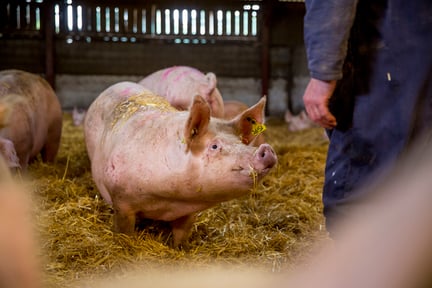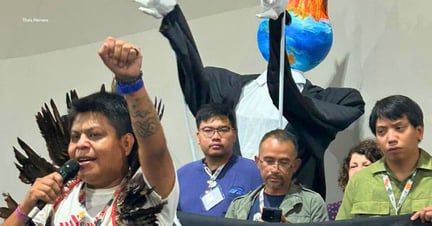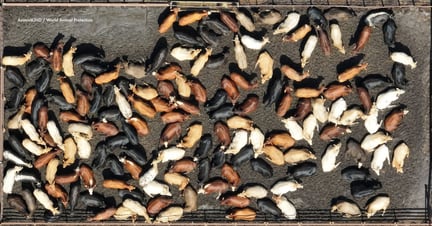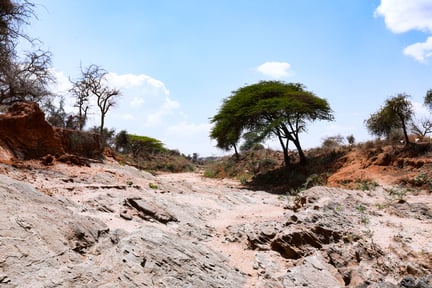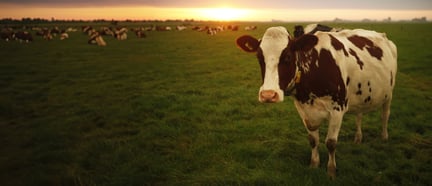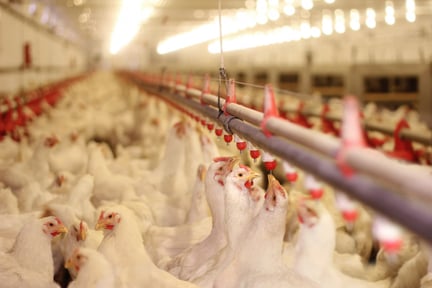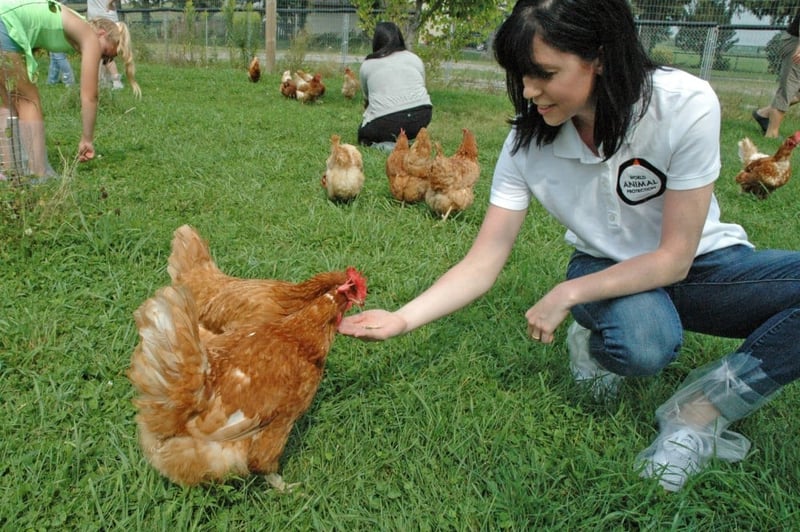
Bonn Climate Change Conference: Shift Food, Save Earth
News
Discover what real success looks like at the Bonn Climate Change Conference 2025 for animals, the planet, and a Just Transition to sustainable food systems.
What Is the Bonn Climate Change Conference?
The Bonn Climate Change Conference 2025 (SB62) is a key event shaping international climate negotiations ahead of COP30 in Belém, Brazil. As the world’s policymakers, scientists, and civil society converge in Bonn, the focus is on accelerating climate action.
The conference is part of the annual UNFCCC negotiations and sets the stage for final decisions at the COP summit and beyond.
Why Is World Animal Protection at the Bonn Climate Change Conference 2025?
The climate crisis is also an animal welfare crisis. Industrial animal agriculture is one of the leading drivers of greenhouse gas emissions, deforestation, habitat destruction, and biodiversity loss.
These harms affect billions of farmed animals suffering in factory farms, and countless wild animals displaced by the relentless expansion of industrial systems. Despite this, animals are largely missing from global climate strategies.
World Animal Protection is at SB62 to change that narrative.
We’re spotlighting the climate damage caused by factory farming and calling for bold, system-wide reforms that must begin now—and culminate in decisive action at COP30.
Food systems account for one-third of global greenhouse gas emissions, with animal agriculture responsible for nearly 60% of that. Even if fossil fuel emissions stopped today, emissions from food systems alone would still block progress toward climate goals.
Here are five key things World Animal Protection wants to see on the Road to Belem:
1. A Just Transition in Food and Agriculture
Governments must commit to a just transition away from factory farming. This includes supporting farmers and workers in adopting resilient, sustainable, and humane food systems. Agroecology and plant-based solutions must be central to future agriculture.
2. Global Shift Away from Factory Farming
High-income nations must lead a global shift away from industrial animal agriculture while supporting lower-income countries in strengthening local, humane food systems. This transformation is essential for climate resilience and food security.
3. Redirecting Public Funds
World Animal Protection calls for public subsidies and climate finance to be redirected from factory farming to agroecological, plant-based, and higher-welfare food production. Financing must support climate-friendly farming that benefits people, animals, and the planet.
4. Action to Stop Deforestation
Governments must urgently halt deforestation and habitat loss linked to animal feed production and livestock expansion. Protecting forests is key to safeguarding biodiversity and stabilising the climate.
5. Joined-Up Climate and Nature Policies
Food systems must be fully integrated into climate, biodiversity and land policies. This includes protecting the rights of Indigenous Peoples, small-scale farmers, and the well-being of all animals, wild and farmed.
Food, Agriculture and Animals Still Not at the Centre of Climate Talks - More Work Ahead
World Animal Protection was on the ground for two weeks at the June Climate Meetings in Bonn, drawing attention to industrial animal agriculture as a major climate culprit and urging negotiators to centre equitable, humane and sustainable food systems in climate action.
There were some encouraging signs. In the first workshop under the Sharm el Sheikh Joint Work on Agriculture (SJWA), agroecology was acknowledged as a holistic and systemic approach by several Parties.
The Brazil COP30 Presidency also indicated that transforming food systems and agriculture will be part of its Six-Axis Action Agenda offering a potential opening for meaningful progress.
Yet much more is needed. It is unclear whether agroecology will finally get its rightful recognition and support especially in terms of financing and implementation.
Climate finance continues to be a sticking point across workstreams, and while just transition discussions are gaining traction, food and agriculture remain largely outside that frame.
We are also cautious about the growing influence of corporate agribusiness in these discussions, whilst the real guardians of land, nature and biodiversity remain sidelined and yet bear the brunt of climate change.
From caged lives to vanishing forests and wild habitats - our food system is failing animals and the climate. We need bold action at COP30 to reset the course towards equitable, humane and sustainable food systems that protect all life.
Looking Ahead: From Bonn to Belém
With COP30 set in Brazil, a major agricultural and biodiversity hotspot, the path to effective climate action runs through food systems. The Bonn Climate Change Conference 2025 must lay the foundation for a future where food and agriculture are at the heart of climate solutions.
World Animal Protection continues to lead global advocacy by engaging policymakers, raising public awareness, and collaborating with frontline communities.
Our message at SB62 is clear: to meet climate targets, we must end our reliance on industrial animal agriculture and build just, sustainable food systems for all.
Climate Change News
-
Delay to EU-Mercosur deal creates space for animal welfare...
News
European Parliament delays Mercosur deal with court referral, offering advocacy space for animal welfare, One Health and deforestation...
-
COP30 Falls Short for Animals and the Amazon as...
News
COP30 closed with limited progress on forests, food systems, or animal welfare. World Animal Protection warns that Big...
-
COP30 hosts 300+ Big Agriculture lobbyists driving climate risk
News
More than 300 industrial agriculture lobbyists attend COP30, including JBS suppliers driving deforestation and threatening climate solutions.
-
Global Methane Report at COP30 warns progress is falling...
News
The first Global Methane Status Report launched at COP30 shows the world is not on track to cut...
